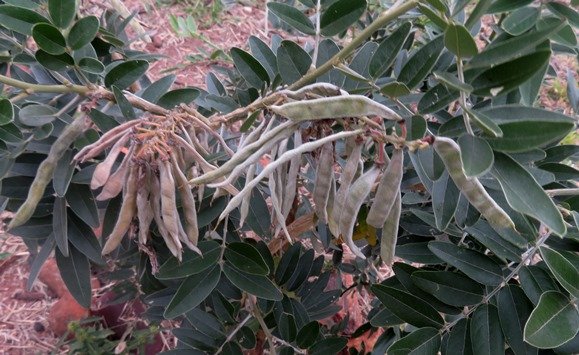Mundulea sericea subsp. sericea abundance of fruit

Author: Ivan Lätti
Photographer: Ivan Lätti
The profusion of Mundulea sericea subsp. sericea fruit pods seen here is a celebration of fecundity. Like when every child is born, there is excitement about the promise of the many and great lives imagined for the next generation.
Comparing the number of seeds produced to the number of saplings taking root in the real world of the species habitat, there is a big gap. This gap translates into huge seed failure and "infant mortality" among most plant species. Where the gap is absent, the species is often a weedy nuisance and risk to other species.
Trees (and the rest of nature) live with their low seed to plant conversion performance gap. People of particularly the affluent world have successfully fought this feature of nature among humans, largely solving the medical problems related to baby survival. The medical solution is offered to impoverished human populations, mostly without meeting the needs of the increased numbers of young people that survive their earliest years.
As a consequence, we overpopulate the world, redefining nature with us as dominant centre-piece. Both rich and poor lean heavily upon nature for our living needs, although in different ways and at vastly different comfort levels.
Whether this human game of homo sapiensified nature has a future, we shall have to wait and see. By many accounts of science (or prophets of doom, or both) we won’t have to wait very long!
Nature through natural selection has endowed our species with its evolutionary hallmark of a superior brain. (Superior to what is for us to keep discovering continually from being tested every step of the way, although we sometimes think that we have nature licked.) The human brain continues to face survival problems, although not all people are equally aware of what is involved or that their behaviour leaves its mark on the earth.
As long as we keep winning, all other species may consider themselves increasingly lucky to be selected (by us) for continued living in either food and other human production enterprises, or zoos and botanical gardens. Later on, more likely in books and video clips for educational purposes or archiving. Unless we relent and cut our fellow species some slack.
If we lose, nobody will read stuff like this after a certain, yet unknown date (Coates Palgrave, 2002; Pooley, 1993).

